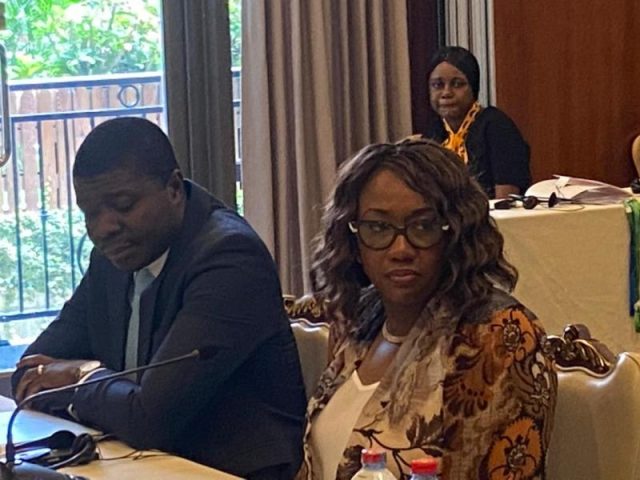By Franklin ASARE-DONKOH
The Vice President of the Economic Community of West Africa States (ECOWAS) Commission, H.E (Mrs) Damtien L. Tchintchibidja has revealed that the potential of the young population of Africa is not being fully harnessed due to limited opportunities.
According to her, ECOWAS is one of the youngest regions in the world and its youth population is projected to continue growing.
Nearly 44% of the ECOWAS population is under the age of 15 and 65% is under the age of 25. Yet, the potential of our young population is not being fully harnessed due to limited opportunities. She reiterated.
Addressing participants at a three days Human Capital Development (HCD) Technical Conference which is currently ongoing in Accra, H.E Tchintchibidja explained that challenges such as high unemployment, widespread illiteracy, and restricted access to basic social services prevail, with women bearing the brunt of these issues disproportionately.
The Vice President of the ECOWAS Commission noted that the previous efforts and investments made by the commission have not adequately catered to the development of a population that is healthy, well-educated, and fully empowered to contribute to the social and economic growth of member countries.
“The path to economic and social advancement in our region demands a more substantial and united effort towards fostering human potential.
Since the launch of the strategy, ECOWAS has actively supported the development of national HCD strategies within Member States. Significant strides have been made in this direction, and today we can proudly say that: seven (7) out of 15 ECOWAS Member States have received ECOWAS funds to support the development of their national strategies.
Nigeria and Burkina Faso have completed the development of the HCD national strategy. While Senegal, Benin, and Guinea-Bissau, have developed their national strategy pending validation.
Nigeria has moved to sub-national implementation of its National HCD Strategy and received significant support from ECOWAS to build out localised delivery.
In Phase 1 of the ECOWAS HCD journey, we achieved key milestones. Now, as we embark on Phase 2, which is focused on implementation, our commitment must intensify to unlock and nurture the full potential of our citizens,” H.E Tchintchibidja stated.
The Vice President of the ECOWAS Commission urged participants to focus their efforts on supporting respective Member States in achieving the objectives of the HCD strategy.
This according to her, involves supporting regional advocacy and communication efforts on HCD, regional resource mobilisation, establishing a centralized monitoring and evaluation mechanism, and building capacity for focal points across all 15 Member States.
Achieving this she noted requires a fundamental change in thinking and a shift in the commission’s actions and innovative approaches.
“To ensure sustainability, we will support every Member State to set up an HCD Delivery Unit responsible for overseeing HCD activities.
The moment has come for us to unite and join efforts with all 15 Member States, technical and financial partners, private sector, civil society, and our citizens, to achieve our shared ambition for Human Capital Development,” The Vice President of ECOWAS Commission assured.
H.E Tchintchibidja explained further that while striving toward the HCD objectives, ECOWAS Member States face several challenges such as political instability, growing insecurity, terrorist attacks, climate change, epidemic outbreaks, and economic migration to name a few.
However, she was optimistic that despite the challenges, ECOWAS is determined to pursue the HCD agenda with more resources allocated to regional stabilization, resilience, and peacebuilding.
If we are successful, HCD will power regional growth, enhance security and stability, accelerate the delivery of national development goals, and drive social-economic inclusion. H.E Tchintchibidja added.
She used the occasion to express her heartfelt thanks to all financial and technical partners, especially the Bill and Melinda Gates Foundation who have been instrumental in supporting the ECOWAS Commission and its Member States throughout the Human Capital Development journey.














